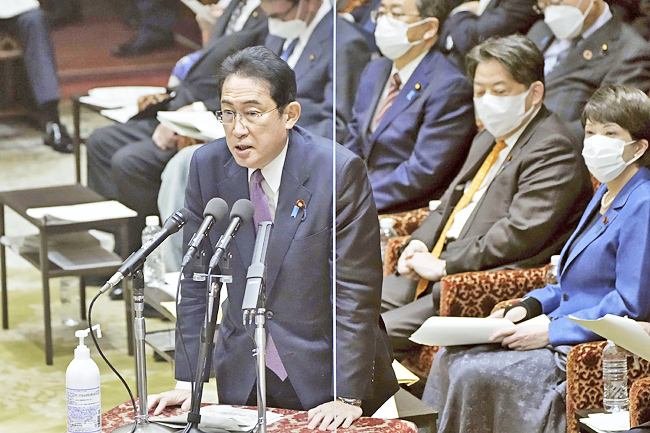TOKYO (AP) – The Lower House of Parliament approved yesterday a budget for the coming fiscal year that includes a record JPY6.8 trillion (USD50 billion) in defence spending, part of Japan’s effort to fortify its military as China’s influence in the region grows.
The 2023 defence budget, up 20 per cent from a year earlier, includes JPY211.3 billion (USD1.55 billion) for deployment of US-made long-range Tomahawk cruise missiles that can be launched from warships and can hit targets up to 1,600 kilometres away.
The planned purchase of the Tomahawks has drawn criticism over the cost, with opposition lawmakers blasting Prime Minister Fumio Kishida for prioritising arms spending over other issues such as Japan’s shrinking population.
“The improvement of childcare has been neglected for more than 10 years,” lawmaker Chinami Nishimura with the opposition Constitutional Democratic Party of Japan, told a Lower House budget committee meeting yesterday. “Why did the budget for spending so much money on Tomahawks get approved so quickly?”
“I don’t think it’s about choosing between one or the other,” Kishida responded. “Both are important for the lives and livelihood of the people.”

Japan is to pay the United States another JPY110 billion (USD830 million) in the coming fiscal year, which begins in April, for equipment and software needed to launch the Tomahawks plus fees for technology transfers and training.
Kishida told a parliamentary session on Monday that Japan will purchase 400 units of Tomahawks.
Passage of the JPY114 trillion (USD836 billion) budget by the Lower House of Parliament, the more powerful of its two chambers, ensures it will be enacted by the end of March regardless of any decision by the Upper House.
The hefty defence budget is the first installment of a five-year, JPY43 trillion (USD315 billion) military spending plan as part of Japan’s new National Security Strategy, which was announced in December.
The new strategy includes developing a “counterstrike capability” to preempt enemy attacks, a controversial change given Japan’s commitment to retain only defensive capabilities after its defeat in World War II. Military spending is due to nearly double within the next five years as Japan builds up its defences in response to potential threats from China, North Korea and Russia.







